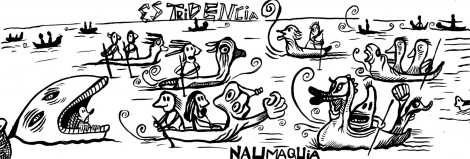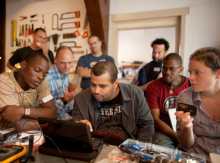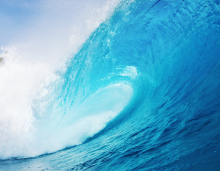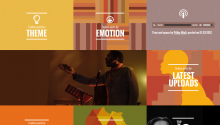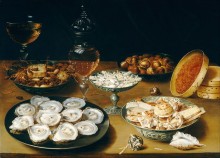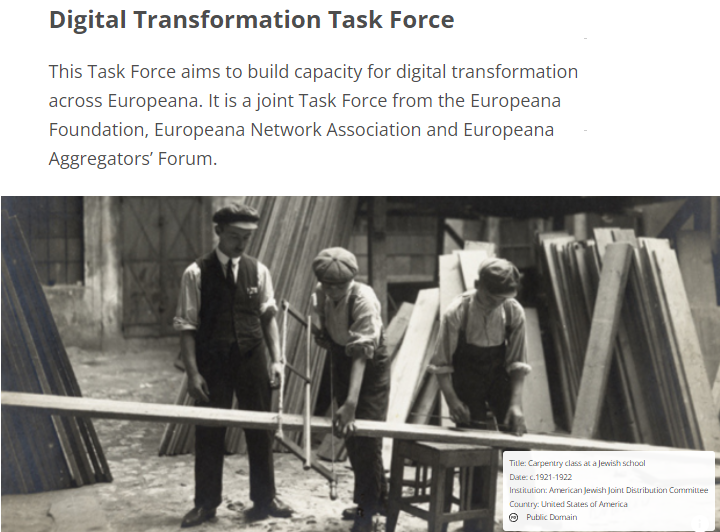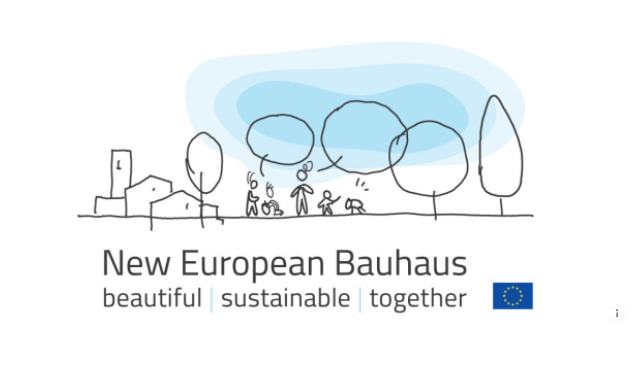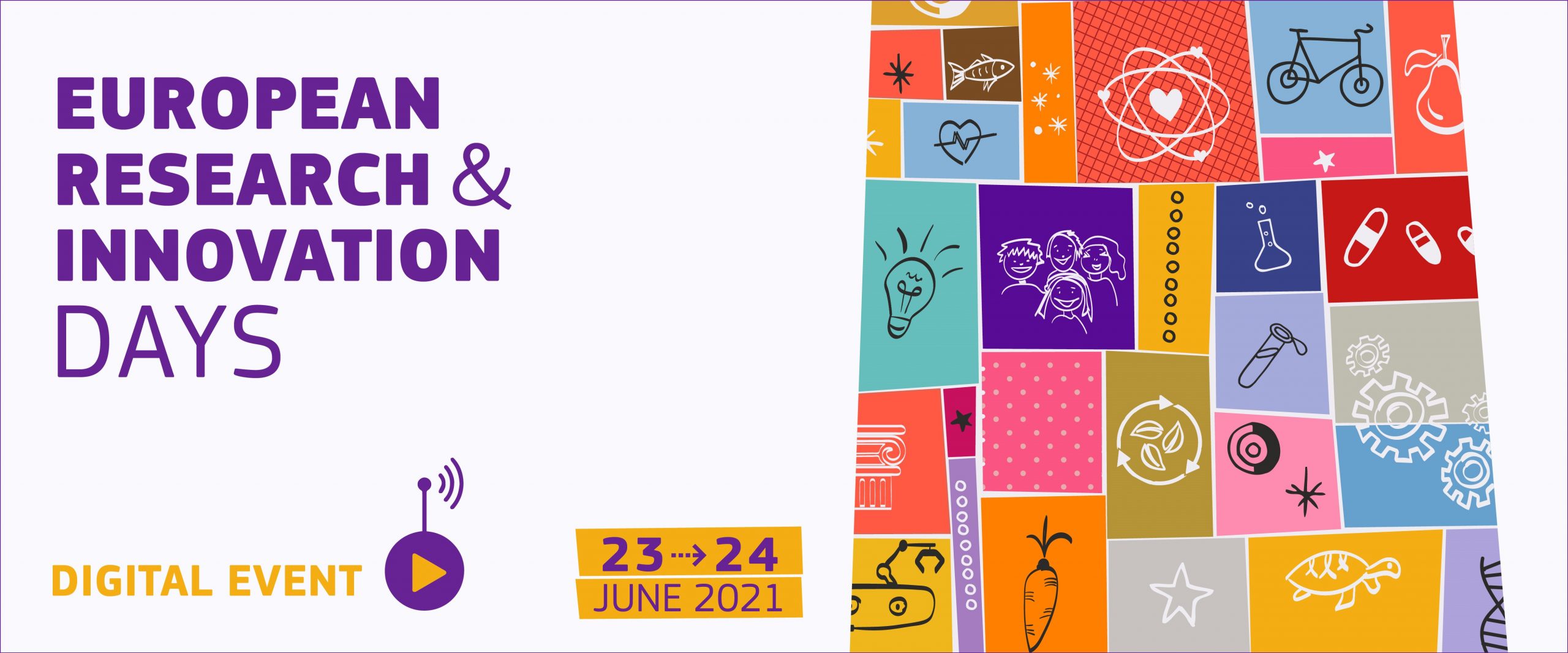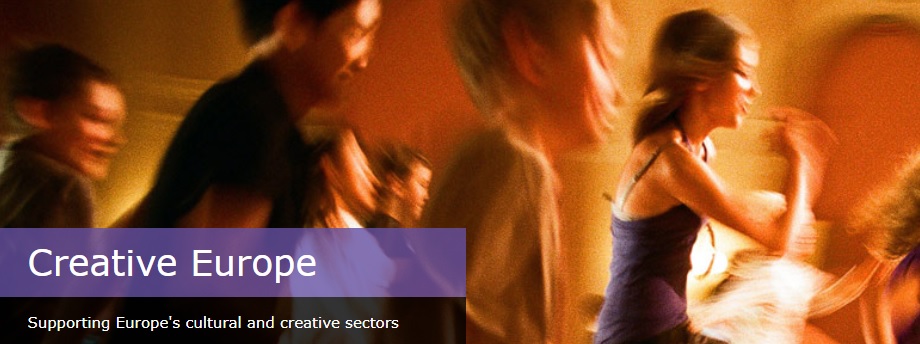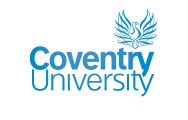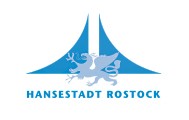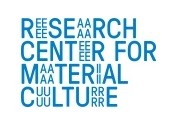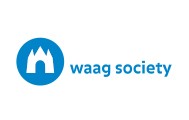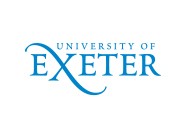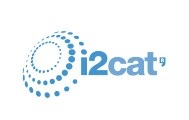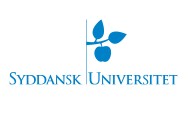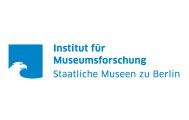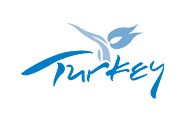Performance art is at the heart of my work – Marcel·lí Antúnez Roca writes – Ultraorbism is an interactive distributed action between two networked connected spaces in two cities: Barcelona and Falmouth.
Both spaces are open-plan, with a backdrop of a large main screen in the centre and a subsidiary screen: the main screen acts as the central area for the story and it is there where the consequences of the various interactive processes engaged in by those acting in both venues are shown; the small screen shows the details of these interactions. This is explained to the audience as the interactivity takes place.
A journey is recounted with the overlapping of various levels of images, some of which are produced dynamically during the performance and others come from the image bank: taken together, they make up the iconographic narrative. The music and lighting are also interactive and coincide with the story of the image. The story is a linear interpretation of the first of the two books of True Histories by Lucian of Samosata (a Syrian writer who lived in the second century AD): it is an impossible journey on which everything is invented, with references to the mythology and literature of the era.
Ultraorbism is a project directed by Marcel·lí Antúnez Roca, based on True Histories by Lucian of Samosata. It is part of the European project SPECIFI and case study of the RICHES European project’s research area. Support is from the Ministry of Culture of the Government of Catalonia, the i2CAT Foundation and live participation by actors and the audience at the University of Falmouth, Cornwall (Great Britain).
Free entrance. All kind of audience.
Concept, drawings and performance: Marcel·lí Antúnez Roca
Live music and performance: Andrea Valle
Text: Julià de Jòdar
Choreography and dancers: Cheap Date Dance Company
Actor: Ciaran Clarke
Video: Joint Effort Studios
Technical direction: Oriol Ibàñez
Programming: Sergi Lario
Animation: David Tangarife, Jesús González and Claudio Marzà
Drawing curtains: Yansy Soler and Wahab Zeghlache
Costumes: Paloma Bomé
Photography: Carles Rodríguez
Researcher: Begoña Egurbide
Sound mix: Paolo Armao and Andrea Valle
Coordination and production in Falmouth: Ian Biscoe and Erik Geelhoed
General coordination and production: Josep Font Sentias and Margherita Bergamo
Assistant: Cristina Llorca
STREAMING
Coordinating technical production, i2CAT Foundation: Sergi Fernández
Technical manager, i2CAT Foundation: Gerard Castillo
Coordinator sociological study, i2CAT Foundation: Marc Aguilar
Documentation and research, i2CAT Foundation: Pau Adelantado
Produced by: Ministry of Culture of the Government of Catalonia and Panspèrmia SL
Organized by: Ministry of Culture of the Government of Catalonia and i2CAT Foundation
With the collaboration of: Falmouth University, Cheap Date Dance Company, Joint Effort Studios, Arts Santa Mònica – Departament de Cultura
Sponsored by: Ministry of Culture of the Government of Catalonia, i2CAT Foundation, SPECIFI Project, RICHES project, European Commission, CIP 2007-2013
SPECIFI is a European project under the CIP program for competitiveness and innovation, that promotes the use of the Internet infrastructures in order to highlight the cultural and creative heritage of the Smart Cities.
RICHES (Renewal, innovation & Change: Heritage and European Society) is a research project about change: about the decentring of culture and cultural heritage away from institutional structures towards the individual and about the questions which the advent of digital technologies is posing in relation to how we understand, collect and make available Europe’s cultural heritage (CH).
The RICHES project has selected ULTRAORBISM as a case study: the two audiences will be given a questionnaire to complete and a discussion will take place between them, to examine how a distributed performance is appreciated and received in the case of this kind of real experience.
Marcel·lí Antúnez Roca is an artist internationally renowned for his mechatronic performances and interactive installations. Since the eighties, his work is concerned about the human condition.
Marcel·lí is a founding member of La Fura dels Baus; he was artistic coordinator until 1990. Since then his solo work is based on technology and it has been shown in more than forty countries. He received the Barcelona City Award for Visual Arts in 2014 for the exhibition Systematurgy, shown in Arts Santa Mònica.
Download the press release on ULTRAORBISM in Catalan language
Visit the Ultraorbism Facebook page



